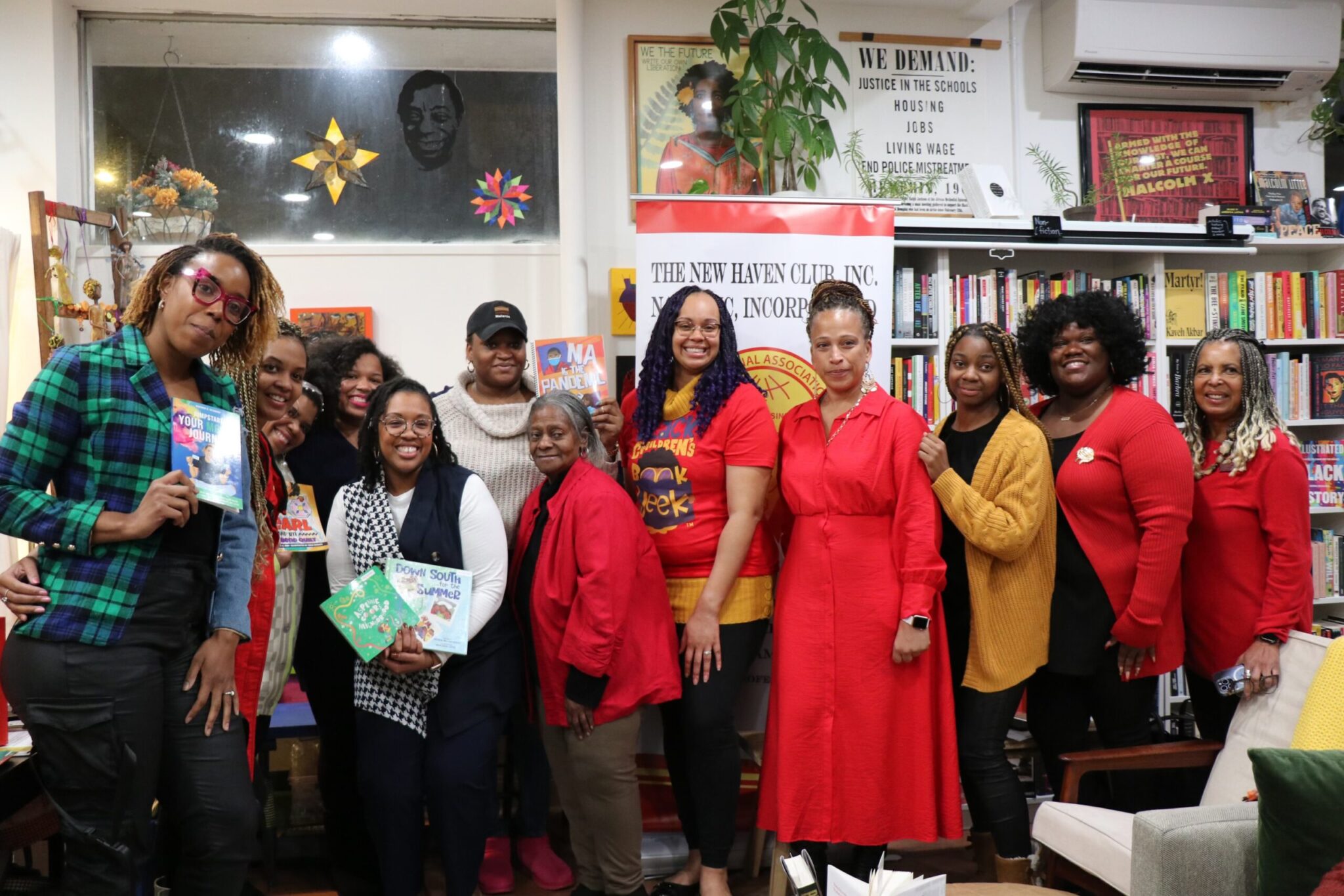Possible Futures features Black women authors to honor Black Children’s Book Week
Local bookstore hosts a panel showcasing Black women writers in collaboration with the New Haven Club of the National Association of Negro Business and Professional Women's Clubs, Inc.

Christina Lee, Photography Editor
On a Wednesday evening, community book space Possible Futures brimmed with the laughter of writers, publishers and New Haveners as four Black writers shared their stories.
Possible Futures hosted an author panel and book signing featuring Black women authors to celebrate Black Children’s Book Week in collaboration with the New Haven Club of the National Association of Negro Business and Professional Women’s Clubs, Inc. The panelists were authors Patricia Bellamy-Mathis, Tangular Irby, Charisse McCotter and Rashia Schand. The women reflected on the importance of representation in children’s books, the logistical challenges of publishing and their personal experiences as Black women writers.
“We can’t just always be in mourning. Black people deserve more joy. Our children deserve more joy,” Bellamy-Mathis said. “If we can mourn collectively, we can also experience joy collectively … We are taking action by publishing books … When [children] see themselves represented in children’s books, it positively affects their self-esteem, and that helps protect them from the impact of racism.”
For Bellamy-Mathis — the founder of Aspenne’s Library, LLC, a children’s book publishing agency based in Newington, CT — representation in children’s books is about uplifting a new generation. From drafting stories on her phone in the middle of the night to searching for illustrators skilled in Black characters, Bellamy-Mathis’ mission from start to finish is creating a space to tell positive stories of the Black experience amidst grief and struggle.
“I want to give us access to a space to share our stories that are true to us. We see so many stories in the news of all the negative things that are happening, but we’re living positive lives,” she said.
Panelist Irby has worked as an educator in Connecticut for over 25 years and discovered her voice as a writer during her tenure as a second-grade teacher. Like Bellamy-Mathis, Irby views writing children’s books as a way of passing the torch of the Black legacy to the next generation.
“There was something in me that wouldn’t let me not tell this story,” Irby said.
Irby’s indomitable drive to preserve the Black legacy stems from her personal connection to these histories. She shares that her great-grandmother was a slave on the last slave ship that came to the United States, and her grandmother marched for voting rights.
“I’m still grappling and dealing with what am I supposed to do with all this information, but it definitely has an impact on where I feel I am right now and how I need to present myself moving forward. That’s my story,” Irby said.
Searching for a way to continue these conversations about her lineage after her mother’s passing, Irby wrote and published “Preserving the Legacy: A Black Woman’s Ancestry Journal to Faithfully Guide the Next Generation” last February.
“A lot of this started from me wanting to document and have a way to connect with my mother, now that she’s gone,” she said. “I still have so many questions.”
A similar familial importance grounds McCotter’s works. After experiencing the emotional toll of the pandemic first-hand through the loss of her friend, McCotter hoped to create a space for children to process their own emotions through troubling times.
Her children’s book about COVID-19 is structured as a conversation between her two sons about navigating safety and communicating their feelings during the pandemic. Her sons are credited as authors.
“COVID was a touchy situation. And I know for me and my children — I lost my best friend to COVID — we had to really work through it,” McCotter said.
Specializing in children’s books about financial literacy, panelist Rashia Schand is committed to educating Black youth on how to have a successful financial future.
“I’m the one in my family that’s breaking generational curses, and being a pioneer in the financial world. And it wasn’t easy,” Schand said. “I don’t want another young person to have to navigate this world blind the way I did, so I want to help prepare the next generation.”
Together, the four women believe that the power to change their communities rests on Black authorship — sharing their stories, experiences and histories with Black children.
For aspiring Black writers, the womens’ advice is to find a community and be proactive in realizing their own potential.
“Confront the barriers that stop you from writing your story,” Irby said.
Possible Futures is located at 318 Edgewood Ave.







